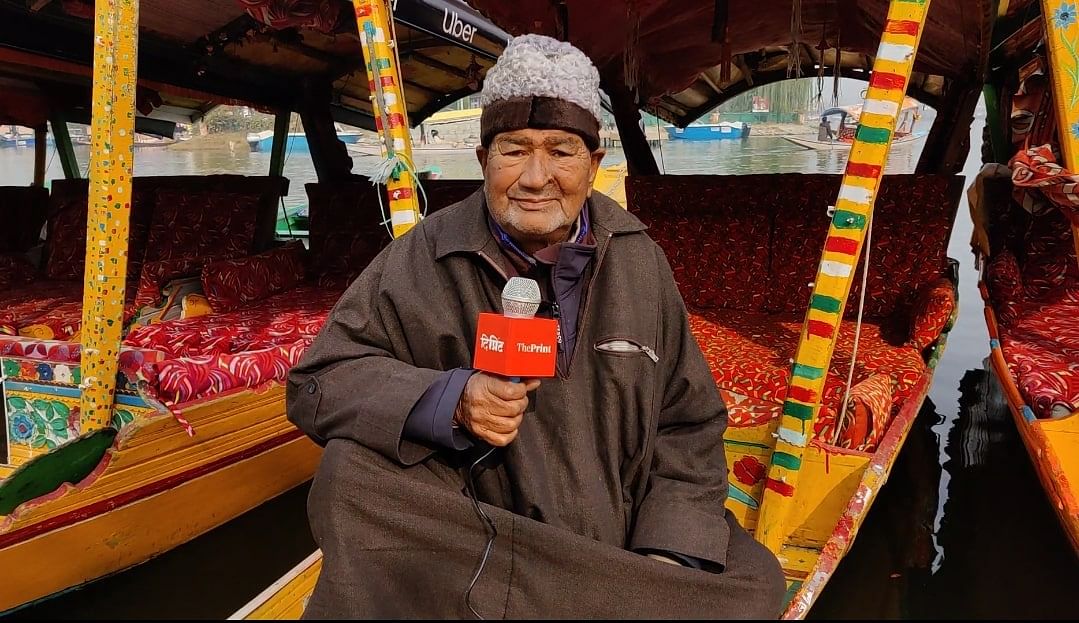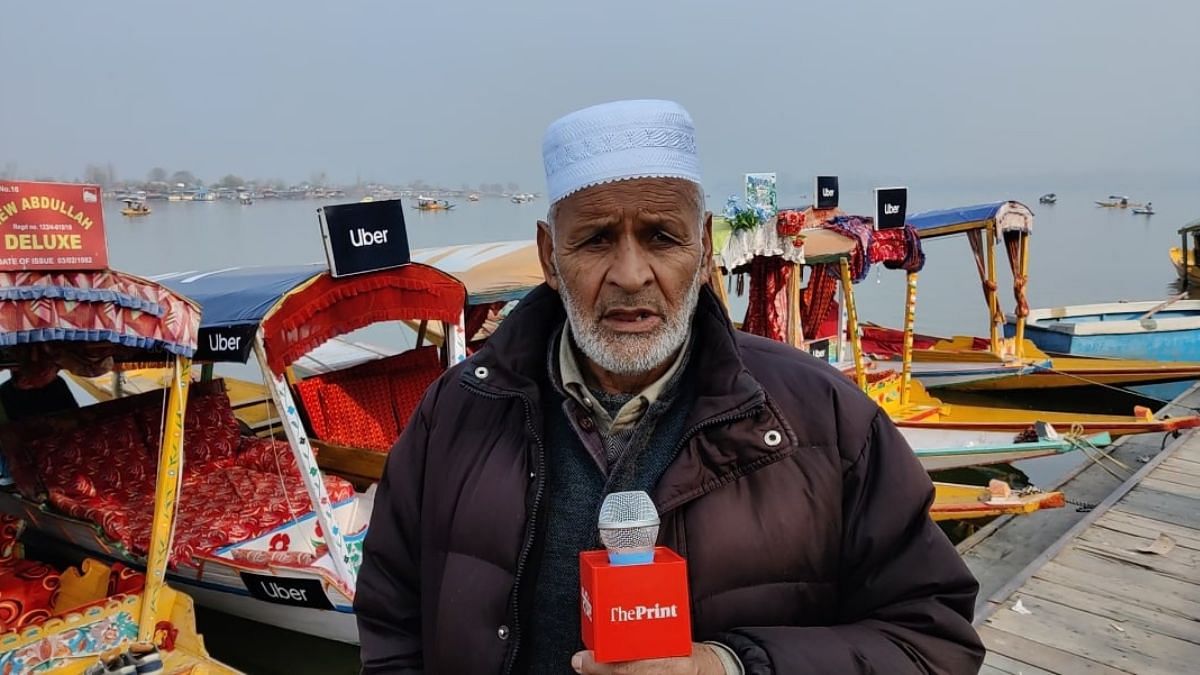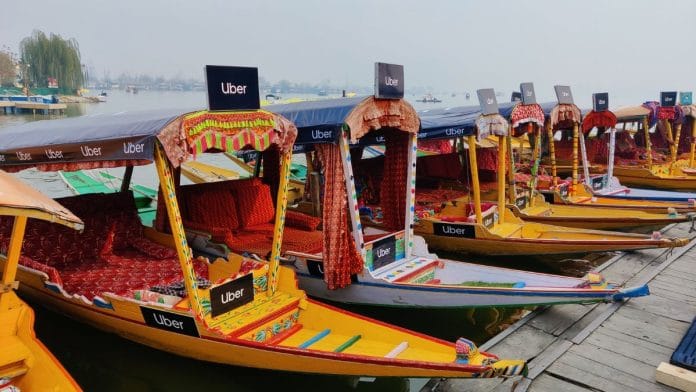Srinagar: After Paris, London, and Athens, Uber has launched boat rides in paradise on Earth. A record tourist footfall in the Kashmir valley last year means that it’s perfect timing for the company to partner with Shikara owners in Srinagar’s Dal Lake.
“Srinagar is a tourism hotspot of the country. You have domestic travellers, international travellers, it’s on the global map—and tourism is on the rise, so it became an obvious choice for us to do something like this,” said Uber’s communications director Ruchica Tomar at the pre-launch event on 29 November.
Having started Shikara rides as a limited-period venture with about 10 boats, Uber is hopeful that the initiative would replicate its success in other cities.
The initiative is in line with Uber India’s recent efforts to widen its presence all over the country — one that could also inspire other players to enter the market.
Uber Shikara blends tradition & tech
Tourists can book a Shikara 12 hours before the ride, up to 15 days in advance. The rides can be booked from Shikara Ghat 16 for an hour, and can accommodate up to four passengers. Booking a boat ride via Uber means escaping inflated rates and safety concerns, especially for international travellers.
A challenge for Uber was to familiarise Shikara owners with the app. According to Tomar, some of them had never used smartphones, so Uber had a team camped in Srinagar to train the boatmen and offer backend support.
For the company, its latest offering “brings technology and tradition together”.
Launch of Uber Shikara in Srinagar is a testament to creative ways technology can enhance our cultural heritage. This offering in upcoming tourist season will provide visitors a seamless way to experience timeless charm of Shikara rides, a hallmark of J&K's beauty. https://t.co/nPYW26SW6P
— Office of LG J&K (@OfficeOfLGJandK) December 2, 2024
Tomar expressed great excitement about the snowfall season. However, Uber Shikara has about a month before winter properly sets in and freezes parts of the Dal Lake, halting most Shikara operations.
“In winter, few tourists come here. The Dal Lake freezes over; people walk on it, play hockey and football, and cricket matches happen too. But this is also a sight for tourists, so a few do come during winter too,” Abdul Razzaq, an elderly Shikara owner, told ThePrint. He has been offering Shikara rides at the Dal Lake for over 60 years.

Even the older Shikara rowers who struggle to operate smartphones expressed enthusiasm about Uber Shikara, suggesting that the company has been successful in establishing a dialogue with the Shikara owners’ union.
“When Uber approached us, we offered them some suggestions, they offered some ideas, and that is how work will go on in the future,” Wali Muhammad Bhat, president of All J&K Taxi Shikara Owners Association, said.

To incentivise Shikara owners during this testing period, Uber won’t be taking commission from their earnings.
“As part of this initiative to promote tourism in the picturesque region, Uber will not charge any fee on Shikara rides booked through its app. The entire amount will go to the Shikara drivers, creating additional economic opportunities for the grassroot tourism workers in J&K,” read the company’s statement released today.
Also read:
An end to inflated rates?
Shikarawalas overcharging for rides has been a frequent complaint among tourists. In September 2023, Srinagar Tourist Police arrested three boat owners for charging a Noida visitor Rs 6,000 for a 90-minute ride. The government-fixed rate is Rs 770, with an additional Rs 300 per hour.
Bhat asserted that this isn’t a frequent occurrence.
“People complain of inflated rates—that’s not a thing at all, government rates have been put up at every gate. The owners also show tourists these rates. Now that Uber is here, through online booking, it could be better.”
Uber is still adjusting to the new territory. Having begun its cab operations only in January, there may be some challenges the ride-hailing company has to iron out.
Uber began operations in Srinagar with UberGo—the affordable taxi—and Uber Intercity. It is yet to start charging a commission for cab drivers, which has been key to its acceptance by drivers in the city. However, this alone hasn’t proved enough.
According to local taxi drivers, Uber’s per-kilometre rates are less than ideal. So, despite the exemption of platform fees, their earnings through Uber are about the same as what domestic ride-hailing services such as Jugnoo or Novo offer.
According to Tomar, the San Francisco-based company, which entered the Indian market nearly a decade ago, could consider launching boat rides or other unique offerings elsewhere in India if Uber Shikara proves a success.
“We’re very hopeful that we get a lot of positive response out of the initiative we’re launching in Srinagar. Uber Shikara gives an experience of a kind that people wouldn’t have seen elsewhere. And learnings from here will really help us take it to different places.”
The author was in Srinagar on the invite of Uber India.
(Edited by Zoya Bhatti)






